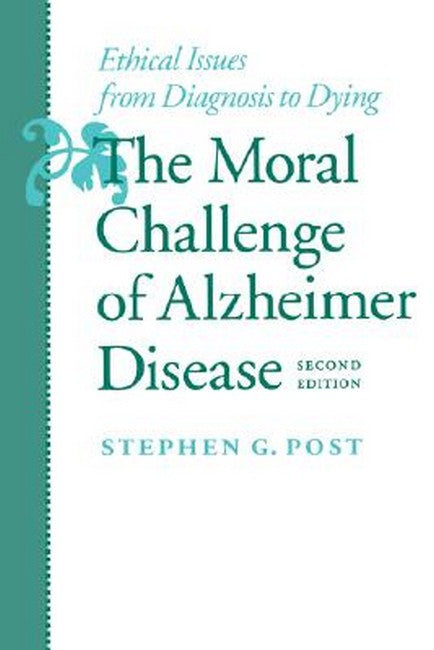Society today, writes Stephen Post, is ''hypercognitive'': it places inordinate emphasis on people's powers of rational thinking and memory. Thus, Alzheimer disease and other dementias, which over an extended period incrementally rob patients of exactly those functions, raise many dilemmas. How are we to view--and value--persons deprived of what some consider the most important human capacities?In the second edition of The Moral Challenge of Alzheimer Disease, Post updates his highly praised account of the major ethical issues relating to dementia care. With chapters organized to follow the progression from mild to severe and then terminal stages of dementia, Post discusses topics including the experience of dementia, family caregiving, genetic testing for Alzheimer disease, quality of life, and assisted suicide and euthanasia. New to this edition are sections dealing with end-of-life issues (especially artificial nutrition and hydration), the emerging cognitive-enhancing drugs, distributive justice, spirituality, and hospice, as well as a critique of rationalistic definitions of personhood. The last chapter is a new summary of practical solutions useful to family members and professionals.Praise for The Moral Challenge of Alzheimer Disease:''Health professionals who deal with dementia, as well as family members who care for relatives who become disabled, will find this book thoughtful, engaging, and provocative.''--New England Journal of Medicine ''The genuine concern and caring that permeates this well-researched, informative and moving book leads me to recommend it highly both to academic and general readers.'' Heythrop Journal ''This is a much needed and inspirational addition to the literature of Alzheimer's disease . . . Ethics Committees will find it invaluable as will nursing home administrators, directors of nursing, and all who care for people no longer able to care for themselves.''--Journal of Long-Term Care Administration ''An intelligent and morally informed treatment of dementia in the aged.''-- First Things ''Full of nourishing food for thought . . . The Moral Challenge of Alzheimer Disease presents the reader with a clear offering of concerns, ideas, and issues about the quality of life and quality of choice issues.''--American Journal of Alzheimer's Disease ''Stephen Post has produced an outstanding, potentially classic book. It is well written, clear, patiently argued, and broadly referenced. Readers can learn much about Alzheimer's disease from this book.''--Health Affairs

